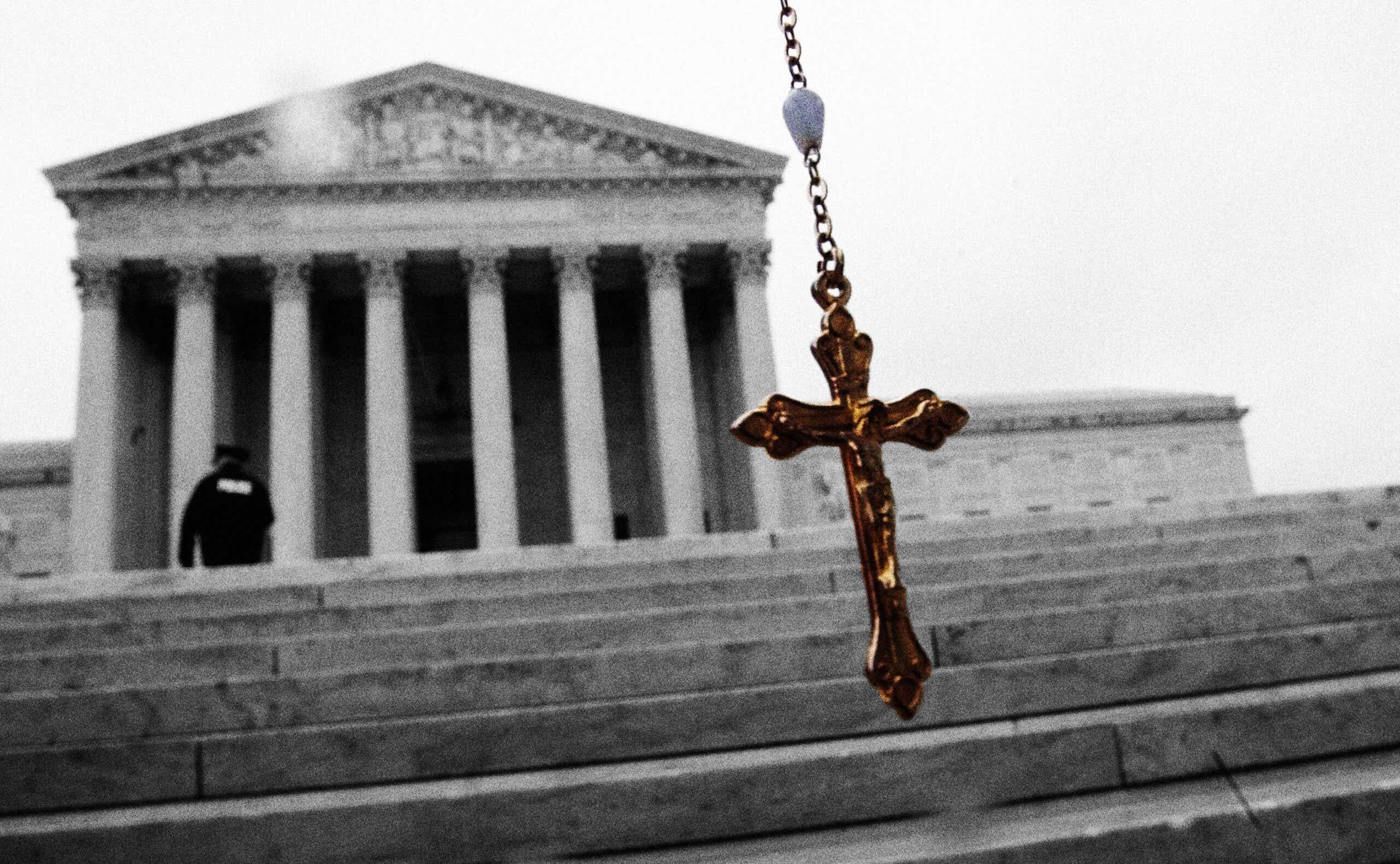A new Supreme Court ruling is raising concerns about America’s long-held tradition of separating religious affairs from those of the state.
Per a 6-3 outcome, the court ruled that Maine can’t exclude religious schools from a state program that offers tuition aid for private education. In response, liberal justice Sonia Sotomayor accused the court’s conservative majority of trying to “dismantle” the barrier between church and state that America’s founding fathers had fought so hard to build.
“In just a few years, the court has upended constitutional doctrine, shifting from a rule that permits states to decline to fund religious organizations to one that requires states in many circumstances to subsidize religious indoctrination with taxpayer dollars,” Sotomayor wrote in a dissenting opinion.
We have more on the details of the case that sparked this new ruling — and some highly anticipated rulings to keep an eye on this term, as there are a whopping 13 decisions that have yet to be announced.
Carson v. Makin
The ruling was in response to the case Caron v. Makin, which challenged a school funding program in rural parts of Maine, where public education tends to be harder to come by. Communities in these areas have two options: They can either sign contracts with nearby public schools to provide their local students with an education, or parents can receive state assistance to cover tuition costs at nearby public or private schools, as long as they’re considered "nonsectarian,” or non-religious.
But a group of Maine parents took issue with this “nonsectarian” requirement under state law, arguing that it violated the Constitution's protections for religious freedoms. The Supreme Court's conservative-leaning majority agreed.
“Maine’s ‘nonsectarian’ requirement for its otherwise generally available tuition assistance payments violates the Free Exercise Clause of the First Amendment,” Chief Justice John Roberts wrote. “Regardless of how the benefit and restriction are described, the program operates to identify and exclude otherwise eligible schools on the basis of their religious exercise.”
What critics are saying
Given that the decision was made across fairly stark ideological lines, it was met with fierce criticism from the liberal wing of the high court. Just like his colleague Sotomayor, Justice Stephen Breyer condemned the decision, saying that it violates the first clause of the First Amendment, which prohibits the government from making a law establishing a religion.
“[W]e are today a Nation of more than 330 million people who ascribe to over 100 different religions. In that context, state neutrality with respect to religion is particularly important,” he wrote in part.
There are also concerns about the decision's implications on the LGBTQ community, given that many students who identify as gay are already under attack in states like Florida. As stated in a brief by Maine Attorney General Aaron Frey, some taxpayer money will now go toward funding religious schools that “candidly admit that they discriminate against homosexuals, individuals who are transgender, and non-Christians.”
What’s next
The decision in Carson v. Makin not only sparks a broader debate about the separation of church and state, but it also represents a major escalation in the battle over whether public funding can be directed toward religious institutions.
Still, this isn’t the only case in the Supreme Court's current term that could have serious implications. The justices are still expected to hand down a highly anticipated ruling that could reverse the landmark 1973 decision Roe v. Wade, which guarantees the constitutional right to an abortion.
There's also the court's biggest gun control case in 14 years, which will decide whether states can regulate carrying a firearm outside the home. And another major decision will focus on the federal government's ability to combat climate change by deciding whether creating environmental regulations on issues like greenhouse gas emissions should be the responsibility of Congress or of executive branch agencies like the EPA.
NPR has a thorough guide on what's ahead for the rest of the session right here.









